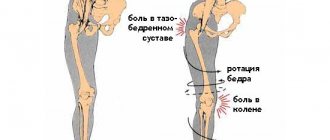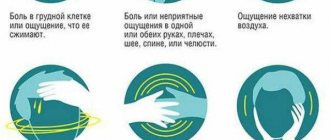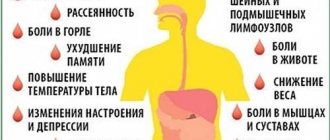What is emotional burnout, exhaustion: what is it, how to fight, how to cope
Emotional exhaustion (burnout) is one of the most common disorders found in modern society. For some, this psychological disorder goes away almost unnoticed, while others have to undergo long-term treatment in order to begin to enjoy life to the full again.
Who can become a “victim” of emotional burnout?
Emotional exhaustion mainly affects people who are constantly in contact with society. This syndrome is expressed not only in a constant feeling of physical fatigue, but also in emotional callousness. A person faced with emotional burnout becomes withdrawn and apathetic.
note
Experts say that psychological exhaustion syndrome is gaining momentum every day. The fast pace of life, the variety of entertainment, the need to absorb huge layers of information - all this leads to the fact that a person lives literally on the edge.
Without the time or opportunity to properly relax and unwind, people are forced to accelerate more and more in order to achieve their goals. And, as everyone knows, if you are constantly at the limit of your capabilities, then one day you can break.
What to do if you feel emotionally exhausted? How to recognize this undoubtedly dangerous condition and is it possible to cope with it without the help of specialists?
Causes of emotional fatigue
Burnout syndrome is a condition characterized by mental, physical and emotional exhaustion due to chronic stress caused by work.
No disease or disorder appears without obvious reasons. The same applies to emotional burnout. But we can say that the appearance of burnout syndrome is influenced by many factors, and if we summarize them, we can distinguish two main reasons:
- Individual psychological. A person, starting to experience stress, begins to revel in his condition and automatically plunges himself deeper into a depressed state.
- Socio-psychological. A person is under constant pressure from external circumstances: work, people around him, social norms, etc. Such an impact often occurs in a hidden form and a person does not always realize that he is experiencing psychological exhaustion.
It is also worth separately noting the presence of subjective and objective reasons. The first include: workaholism, professional experience, desire for control, focus on results and character traits. Objective reasons are expressed in:
- overwhelming information load;
- irregular work schedule;
- insufficient rest;
- constant comments and criticism;
- monotonous work in a highly competitive environment.
How does emotional exhaustion manifest itself?
Burnout never happens overnight. This syndrome is characterized by long-term development, sometimes in a latent form. In order to determine if you have emotional exhaustion, you need to pay attention to its symptoms:
- Psycho-emotional signs. Such manifestations include bad mood, apathy, increased feelings of self-doubt and lack of motivation for further action. The person becomes more irritable, complains more and more about problems and failures, and does not fight the increasing attacks of uncontrollable anger.
- Somatic signs. People are increasingly suffering from migraines, back pain and dizziness. In addition, there may be problems with the functioning of the gastrointestinal tract, lack of appetite, sleep problems and increased sweating.
To a greater extent, the symptoms of emotional burnout are similar to depression. Experts strongly recommend not to self-medicate, but to seek help from them.
Important
Emotional exhaustion, like depression, is a very dangerous disorder and therefore the treatment process should be under the supervision of a psychologist.
Stages of emotional burnout
To realize that you have emotional burnout syndrome, it is not enough to simply become familiar with its symptoms and diagnose the presence of the disorder. To understand the overall picture and possible dangers, you need to understand what stages the whole process consists of.
German psychologist Matthias Burisch assures that there are 4 stages that lead a person to emotional exhaustion:
- Enthusiasm and spirituality. At first, almost every person is driven by idealism and “Napoleonic” plans. He sets simply exorbitant goals for himself, confident that he will easily achieve them. But the inability to soberly assess his capabilities quickly pacifies his ardor.
- Exhaustion. The desire to do everything and everywhere, working hard, and the inability to properly manage your time lead to exhaustion. Most often, a person begins to experience physical weakness and fatigue.
- Manifestation of defensive reactions. What happens to a person who takes on an unbearable burden? His social connections begin to suffer from excessive stress, the person experiences difficulties in developing relationships with people around him and subsequently withdraws and withdraws into himself. This is how the protective function of the body manifests itself, which stubbornly signals fatigue. A person understands that he needs rest, and therefore minimizes his social activity. On the one hand, such a reaction of the body is beneficial, but its negative manifestation is the negative perception of mandatory contacts with others.
- Aversion syndrome. In essence, this stage is expressed in strengthening the protective manifestations of the body. The person begins to experience increased nervousness, apathy and irritability. He comes to the conclusion that life does not bring him joy and is filled with difficulties, a kind of gray, dull existence.
How to deal with burnout
Almost every person has experienced symptoms of emotional exhaustion at least once.
You can especially often notice signs of burnout in moments of high anxiety and tension. It is expressed in sleep disturbance, irritability, apathy and a feeling of discomfort.
Experts consider this level of exhaustion to be the simplest and recommend limiting yourself to proper rest.
The biggest danger of burnout is how difficult it is to detect. Therefore, psychologists strongly advise you to seek advice and get tested if you notice that you have the above symptoms.
Before starting direct treatment, psychologists conduct a number of diagnostic measures that can determine the stage of emotional burnout.
After identifying the degree of psychological exhaustion, the specialist selects an individual treatment method. To be fair, it should be noted that there is no universal method of treatment; the fight against burnout requires painstaking work with the patient, aimed at relieving general tension.
The biggest mistake of a person suffering from burnout syndrome is his attempt to accumulate remaining strength and direct it to work..
In simple terms, a person simply gathers all his will into a fist and rushes into the embrasure, foolishly believing that it is worth straining and finishing the job.
As a result, he simply works for wear and tear and depletes his body even more.
If you nevertheless realized the danger of exhaustion and recognized the need for treatment, then you should first stop the senseless pursuit of absolutely unnecessary things.
Learn to properly distribute your strength and not shoulder an unbearable burden. Reduce the amount of work you do and get into the habit of taking frequent but short breaks.
The ideal option would be to rest briefly for 10 minutes every hour.
Also, to combat emotional exhaustion, you need to increase your own self-esteem, because most often it is people who are not confident in themselves who drive themselves down at work. Try to focus on the positive traits of your character and praise yourself for your work and perseverance. It wouldn’t hurt to introduce small rewards for yourself in case of success, even the most insignificant ones.
Another good way to treat is to gain new knowledge. A person who lives according to the rules and is tired of monotony is more likely to become a victim of emotional burnout than a person who is trying to diversify his life with additional education or educational hobbies.
Psychologists also strongly recommend involving family and friends in therapy. Try to talk about your psychological state with friends and relatives as often as possible, just be sure to agree with them in advance, otherwise they will begin to perceive you as a whiner and run away.
It’s also worth setting aside time to listen to light, soothing music in the evening. Many people use recorded sounds of nature to relieve stress and claim that enjoying the sound of tropical rain is noticeably relaxing.
Sometimes specialists prescribe drug intervention, but this is only possible as a last resort. A person should still do without additional exposure in the form of tablets. But if there are no other options, then preparations containing valerian, lemongrass, ginseng, aralia, rhodiola rosea and eleutherococcus come into play.
Source: https://blizosti.net/kak-spravitsja-s-jemocionalnym-vygoraniem/
Preventive measures
Burnout syndrome can be completely avoided if you follow these recommendations:
- Strengthen your health through exercise, sports, and keep fit.
- Regularly walk in the fresh air, ride a bike, roller skate, etc.
- Follow a daily routine, sleep at least 8 hours a day.
- Eat right, take a balanced intake of vitamins and minerals, eliminate fats.
- Avoid bad habits.
- Be sure to take at least one day off per week.
- Set your life priorities correctly.
- Do auto-training, meditation, relaxation.
- An excellent option is aromatherapy.
- Talking more often with an attentive, caring listener or laying out your ideas on paper for analysis will clear your head of disturbing “bad” thoughts.
- Trying to properly distribute workloads, does not strive to be the best in any matter no matter what.
- Don't take conflicts at work too personally.
- Learn to quickly switch to another activity.
Psychologists also advise acquiring the ability to accurately determine your priorities, not to chase unnecessary things, not to put generally accepted opinion at the forefront - it is better to be guided by your own.
It is also necessary to be able to tolerate losses and not be afraid of fears. When you lose energy and meaning in life, you need to believe: new forces will come and a different incentive will arise.
What is emotional burnout/exhaustion? Neither sadness nor joy...
Emotional exhaustion is easier to prevent than to treat. Therefore, today we will introduce you to the causes of central nervous system overload and how the brain protects you from stress. Based on this, you can safely reflect on your approach to problems.
What is emotional burnout?
Emotional exhaustion or burnout is the ability of the psyche to build a defense in response to factors traumatic to the psyche by getting rid of emotions. Those. as a result of prolonged stress, a person stops feeling anything and reacting to what is happening. Emotions become dull, and persistent indifference appears.
Professional stress in understandable language. Recommendations for getting rid of stress based on WHO guidelines
Emotional burnout can be considered as an acquired behavioral strategy. This behavior pattern of our body can be viewed in a positive light, since “burnout” saves internal resources by reducing energy costs. This is necessary for survival.
On the other hand, negative consequences of “exhaustion” inevitably arise. For example, the inability to work effectively, with immersion in the process and interest, and to be in a state of flow. Burnout also prevents you from building healthy, emotion-based relationships with people.
Causes of burnout syndrome
It all comes down to getting out of your comfort zone and overdoing it. Each of these situations is an excellent stimulus for the development of emotional burnout over the long term:
- the inability to track one’s own progress due to the lack of a clear connection between the efforts invested and the results of activities;
- discrepancy between performance results and invested efforts;
- lack of time to complete assigned tasks and goals, as well as too short deadlines for achieving goals;
- lack of skills to control one’s own emotions;
- high loads;
- high responsibility associated with constant fear of letting down or disappointing the manager (boss);
- inability to establish contacts with people and get out of difficult situations independently, ignorance of basic strategies for behavior in conflicts.
To add some emotional flavor to the article, we give as an example the real story of a girl from Instagram who experienced all the “delights” of emotional exhaustion.
Source: https://1timer.ru/aya-psihologiya/emocionalnoe-istoshhenie/
Historical excursion
G. Freudenberg (a psychologist from the USA) was the first to focus on the problem of emotional exhaustion in his work in 1974. The scientist indicated how strongly the burnout syndrome affects a person’s personality, described in detail the causes, symptoms, as well as the stages of its development.
Freudenberg called this phenomenon burnout (professional burnout) and associated it with the characteristics of the work of people who constantly deal with the so-called human factor. Due to their duty, day after day they experience the consequences of someone else’s bad mood, negative manifestations, inappropriate behavior and, as a result, receive enormous stress loads. This category includes professions related to:
- with rescue services and law enforcement agencies;
- with teaching activities (schools and universities);
- with work in a hospital;
- with services to large flows of clients.
Simply put, these are social workers, medical staff of various categories, law enforcement officers and the Ministry of Emergency Situations, etc.
At the same time, the specialist did not rule out the appearance of this disorder in creative individuals, young mothers and housewives.
The term “emotional burnout syndrome” (abbreviated as EBU) was coined in 1976 by Christina Maslach, an American social psychologist. She defined it by the following criteria: emotional and physical exhaustion, negative attitude towards work, negative self-esteem, loss of empathy and attention to patients or clients, respectively.
We began to seriously study this phenomenon in the nineties of the last century.
Emotional exhaustion: what is it and how to fix it
What is emotional exhaustion?
Emotional exhaustion is a state of emotional exhaustion resulting from accumulated stress from your personal or work life, or a combination of both.
Emotional exhaustion is one of the signs of burnout.
People experiencing emotional exhaustion often feel like they have no power or control over what happens in their lives.
They may feel “stuck” or “trapped” in a situation.
Lack of energy, poor sleep and decreased motivation can make it difficult to overcome burnout.
Over time, this chronic stress condition can cause irreparable harm to your health.
Anyone who experiences prolonged stress can become emotionally exhausted and depressed.
Emotional exhaustion can creep up on you during difficult times, but it's never too late to get help.
What are the symptoms of emotional exhaustion?
Symptoms of burnout can be both emotional and physical.
People experience burnout in different ways, but symptoms typically include:
- lack of motivation
- sleep problems
- irritability
- physical fatigue
- feeling of hopelessness
- absent-mindedness
- apathy
- headache
- change in appetite
- nervousness
- difficulty concentrating
- irrational anger
- increased cynicism or pessimism
- feeling of fear
- depression
Employers whose employees are overworked and emotionally exhausted may begin to notice changes in productivity and overall team morale.
For example, they may begin to notice that their employees have:
- failure to meet deadlines
- decreased commitment to the organization
- more absences
- high turnover rate
What Causes Emotional Exhaustion?
Experiencing daily stress and anxiety is normal, but over time, chronic stress can wreak havoc on the body.
Emotional exhaustion is caused by a long period of constant life stress, whether from personal stress at home or work-related stress.
What causes emotional exhaustion differs from person to person.
What may be stressful for one person may be completely manageable for another person.
Some more common causes of burnout include:
- High pressure jobs such as nurses, doctors, police officers and teachers
- work long hours or work a job you hate
- to raise children
- financial stress or poverty
- homelessness
- be a guardian for your loved one
- lengthy divorce process
- death of a family member or friend
- living with a chronic illness or injury
How to treat emotional exhaustion
You can make certain lifestyle changes to help relieve symptoms of burnout.
These techniques will not be easy to implement at first, but will become easier as you begin to develop healthier habits.
Making small changes to your daily habits can help manage symptoms and prevent burnout.
Once you recognize the signs of burnout, try the following:
Eliminate the stressor
Although this is not always possible, the best way to treat stress is to eliminate the stressor.
If your work environment is causing you burnout, consider changing jobs or companies.
If your manager or supervisor is causing you stress, you may also want to consider transferring to a new department or requesting a different manager.
Healthy eating
Eating healthy means choosing a balanced diet rich in fruits, vegetables, whole grains and lean meats, while avoiding sugary snacks and fried or processed foods.
We're told to eat healthy all the time, but it can make a world of difference when you're stressed.
Not only will it help you get the vitamins and minerals you need, but it will also improve your digestion, sleep, and energy levels, which can impact your emotional state.
Exercise
Any physical activity increases the level of endorphins and serotonin .
This can improve your emotional state. Exercise also helps take your mind off your problems.
Try to exercise for 30 minutes a day, even if it's just a long walk.
Alcohol limit
Alcohol may temporarily improve your mood, but the feeling will quickly fade, leaving you more anxious and depressed than before. Alcohol also interferes with your sleep.
Get some sleep
Sleep is important for emotional health. This is even more effective if you plan to go to bed around the same time every night.
Try to get eight to nine hours of sleep every night.
Developing a bedtime routine can help you relax and ensure better quality sleep.
Limiting caffeine can also have a positive impact on your sleep schedule.
Practice mindfulness
Mindfulness is a term you probably hear a lot, but mindfulness techniques are much more than just a fad.
They are scientifically proven to reduce stress and anxiety and may be the key to balancing your emotions.
Mindfulness is the act of engaging with the present moment. This can help take your attention away from negative thinking.
There are many ways to practice mindfulness. Examples include:
- meditation
- yoga
- breathing exercises
- take a walk, especially in nature
- keep a journal to record your feelings and thoughts
Recently, researchers have even found evidence that one session of mindfulness meditation can help reverse the effects of stress on the body.
Contact a trusted friend
Talking face-to-face with a friend is a wonderful way to relieve stress. The person who listens does not necessarily have to solve your problems.
They may just be a good listener. A trusted friend or family member can listen without judging you.
Take a break
Everyone needs a break at some point. Whether you're taking a vacation or just finding time to go to the movies, every little bit helps.
Meet with a professional
Along with lifestyle changes, it is important to seek professional help to treat burnout.
A professional, such as a therapist, can give you the tools you need to work through a stressful time.
Some of the methods used by professionals include:
- cognitive behavioral therapy (CBT), a form of psychotherapy also known as talk therapy
- applied relaxation methods
Use supplements
Along with lifestyle changes, it is important to seek additional supplements that can help restore at the cellular level, and supplements from the New Era company can help you with this.
These are “Pine Pollen” and “Peruvian Maca”
Pine pollen contains more than 268 useful substances: about 20 amino acids, over 30 types of minerals and trace elements, 14 vitamins, about 100 enzymes and coenzymes, as well as more than 200 other biologically active and nutrients, such as nucleic acids, monosaccharides, polysaccharides, fiber , unsaturated fatty acids and flavonoids.
Maca peruviana may be involved in setting up the treatment of many diseases. Biologically active substances in the composition of the meijen bug regulate the reproduction of cortisol (stress hormone) in the hypothalamus, and also tone the activity of the adrenal glands.
What are the prospects for emotional exhaustion?
Stress that causes burnout puts you at risk of burnout.
Over time, this can lead to health problems .
Chronic stress can affect your immune system, heart, metabolism, and overall well-being.
Emotional exhaustion puts you at risk of:
- high blood pressure, which increases the risk of heart disease
- frequent colds and infections
- weight gain
- insomnia
- premature aging
- anxiety
- depression
CONCLUSION
Emotional exhaustion is a treatable condition. The best treatment is to remove the stressor or stressful event.
For example, if your job is causing you emotional exhaustion, it may be time to consider a job change.
If you cannot eliminate the stressor, take advantage of the resources available to resolve the problem.
Talk to your doctor or mental health professional about how to manage stress and anxiety.
Share and ask your friends for their opinion!:
Source: https://newera-company.ru/zdorovie/emocionalnoe-istoshhenie/











